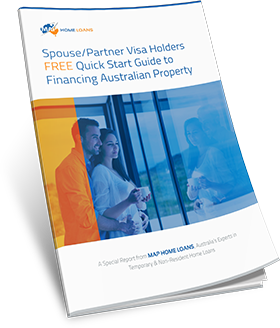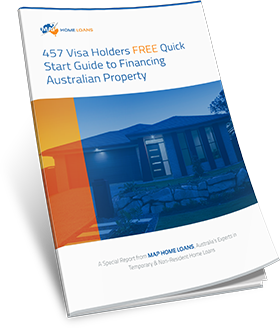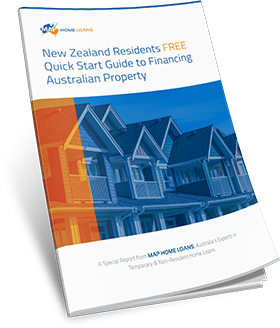Rental Property Tax Deductions that Put Money Back in Your Pocket
Jan 14, 2016 by Map Home LoansHave you invested your hard earned money in a rental property, or are you considering it? Perhaps this is for your family’s future or maybe to create some passive income for now and in retirement.
Because of this, I know how important it is to ensure that you are maximising your rental property tax deductions. Well, to make sure you are getting the best out of your rental property tax deductions, this short article will provide a broad overview of the deductions available.
Some of this advice, can mean more money back in your pocket.
I hope you enjoy the article, and find this guide useful.
Before we go any further let me explain the three categories of expenses we will be dealing with.
1. Immediately deductible
2. Deductible over a number of years
3. Not deductible
1. Immediately Deductible
1a. Interest on Investment Loan
If you are lucky enough, not to have taken out a loan to purchase your property, you won’t need to worry about this deductible, but if like the majority of people, you got a loan to purchase your rental property, then the good news is you are able to claim the interest on that loan as a tax deduction.
Two important conditions for claiming a deduction on your interest, the property must be rented or available for rent for the relevant period, and the loan must have been used to either purchase the property, fund improvements to the property, or fund repairs and maintenance to the property. If any part of the loan has not been used for these purposes, then it is not an allowable rental property tax deduction. One example of when interest is not deductible, is if you re-draw funds from your rental property loan but use it for personal expenses (for example on a holiday or new car). You will then need to apportion your interest between rental property and personal use.
1B. Repairs, Maintenance and Getting the Fence Fixed
Costs of repairs and maintenance are generally acceptable rental property tax deductions as long as the expense relates directly to wear and tear, or damage incurred as a result of renting the property. So to give you an example, if a tenant reverses his car into the fence of your rental property and it needs repairing, the cost will be immediately deductible. However, if you decide you just don’t like the style of the fence and want to replace it to improve the look of your property, this is not deductible. Well not immediately anyway, more on that later.
The costs involved in improving the property or repairing items that were already damaged or defective at the time of acquiring the property are considered capital in nature and though not immediately tax deductible, these costs may be depreciable over time. This is covered further on in (section 2, Depreciation Allowances).
1C. Body Corporate or Strata Fees
These fees can be an acceptable rental property tax deduction depending on the purpose of the fee. Body corporate fees are often split into two or more categories as below.
(1) For day to day administration of the body corporate and maintenance of the common property. This first category of body corporate expenses, are generally tax deductible in the year they are incurred.
(2) For accumulating funds for a special purpose (e.g. capital improvement). Similar to the earlier example where you want to improve the look of the fence. Payments into a special purpose fund for a specific capital expenditure are generally not tax deductible, however just like the earlier example you may be able to claim a depreciation allowance once the special purpose fund account has been charged the capital expense.
1D. Property Management
Costs involved in managing, inspecting and collecting rent for your rental property (such as property management fees) are eligible rental property tax deductions.
1E. Travel Expenses (and we Don’t Mean your Holiday to the Gold Coast)
If you travel (e.g. fly) to inspect your rental property, you may be able to claim your travelling expenses as a rental property tax deduction. You may claim 100% of your costs where the travel is solely related to the rental property, otherwise you will need to apportion the costs of the travel between the rental property and the other purposes. You can only deduct those costs apportioned to the rental property.
So if your rental property is in Brisbane and you take a flight from Perth to Brisbane to inspect your property but then spend a few days lying on the beach at the Gold Coast, you need to determine what percentage of the travel cost is related to the property and what percentage is related to your time at the beach.
1F. Prepayment of Rental Expenses Reducing This Year’s Taxes
A good way to get some of the deductions a year earlier is to claim prepayment of rental expenses. Such as, insurance or interest on your investment loan. So long as it covers a period of less than 12 months into the future, this is fine.
2. Deductible over a Number of Years
2A. Borrowing Expenses
Borrowing expenses such as loan establishment fees are rental property tax deductions, that are deductible over five years (or the term of the loan if it is shorter).
2B. Depreciation Allowances
The two categories of depreciation allowances are
1. Depreciation on Depreciable Items (Plant – generally items within your rental property like dishwashers, carpets, curtains)
2. Depreciation on Capital Works (Buildings)
The depreciation allowance is an allowance that represents the reduction in the value of your rental property (buildings and plant) over time. It is a “non-cash” deduction which means you do not need to incur an ongoing expense to obtain the benefit of the tax deduction.
Sort of like how your car loses value, as it gets older. You have lost some of its value (money) just because it has gotten older. There are however many rules relating to how you calculate the depreciation allowance for a particular property. The best way to determine your depreciation allowance is to employ the services of a quantity surveyor, but we will give you more information on this in a future article. So keep an eye out for that.
Next we will deal with items for which you get nothing back (i.e. not deductible). I know, not really exciting but it probably is a really good idea to know these, so you can make sound decisions for the future and not get any nasty surprises.
3. Not Deductible
3A. Expenses Not Related to Renting the Property
Ok so you lived in the property for 6 months of the year, how does that work. If your property was not available for rent for the full tax year then you are only entitled to deduct expenses related to the period of time it was rented. So with this scenario you lived there for half a year, and then rented it for the other six months of the year. In this case, you would generally be entitled to claim half of your expenses. An example would be, you could claim 50% of the council rates, as a tax deduction.
And if you’re renting out part of the property, then you will also need to work out your costs in a reasonable manner (e.g. floor area). So for example, you are renting 1 bedroom out of a 4-bedroom house and having the joy of sharing the amenities and kitchen with your tenant. In this situation 25% of costs being rental property tax deductions, could be seen as reasonable based on the floor area.
3B. Buying and Selling Costs of the Rental Property
Contrary to common perception, costs involved in the purchase (or sale) of your property (e.g. conveyancing fees, building inspection costs) are not allowable rental property tax deductions.
But when you sell up and make some money, these expenses can form part of your cost base for capital gains tax purposes, and thus reducing any capital gains tax payable.
3C. Expenses Not Incurred By You
While this may seem obvious, it is worth pointing out. If you do not incur the expense, then you are not allowed to claim any rental property tax deductions for it. For example, if your tenant pays to repair the fence himself, or pays for water consumption, you are unable to claim a deduction for it.
I hope you found this article useful.
Craig Joslin is the founder and CEO of The Australian Expat Investor (www.austexpatinvestor.com), a company dedicated to empowering Australian Expats with the knowledge and tools to develop clear and effective investment strategies to maximise their wealth while living abroad. Get Craig’s free ebook Financial Survival Tips For The Australian Expat at www.austexpatinvestor.com/free-ebook
Disclaimer : The information contained in this article is intended only as general commentary and does not purport to be comprehensive. No warranty is provided as to the accuracy. It should not be regarded as tax, financial, or legal advice. Remember, the value of an investment can go down as well as up, and you should seek professional advice that considers your specific personal circumstances.

FREE Quick-Start Guide To Financing Australian Property
Kobus&WillemienJustin assisted us in buying our first house, in Australia, 10years ago. He just did it again with our second house. Same old story again… Always helpful, always available, always friendly. We didn’t had any stress, he just sorted it and came up with the best results to suit us. What a pleasure to work with. Thanks Justin, you just made it so easy.
Brendan ConquestWe have been working with Justin for almost 10 years and he has always made the process easy and time efficient. Justin’s help to get things over the line is stress free and uncomplicated, he always handles everything with such care and compassion.
We are extremely grateful for Justin’s services and would highly recommend him and the MAP home Loans team to anyone in need of help, advice or guidance with their home loans.
Thank you, Justin!
Timothy RussMy Wife and I worked with Justin to purchase our first home and we couldn’t be happier with the help we received to make our dream a reality. Justin had answer’s to every question and made it very easy to understand how it all works. I highly recommend using Map home loans to take the stress out of buying a house.










